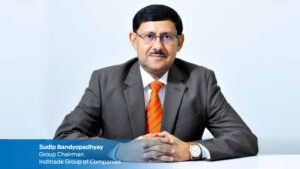Nicholas Nassim Taleb, in his book, ‘Antifragile’ talks about things that gain from disorder. Antifragile is beyond resilience or robustness. The resilient resists shocks and stays the same whereas the antifragile gets better. Antifragile points out the value systems that gain from disorder, chaos, or volatility. When Taleb came out with Antifragile, he had in his mind Black Swan events which he covered in his earlier book ‘Black Swan’.
He had highlighted that the Black Swan events take everybody by surprise and no amount of prior planning can help one in the eventuality of Black Swan events. As a prescription for organizations of the future, he came up with the suggestion that they should endeavour to become Antifragile for not only surviving Black Swan events but thrive and benefit from such events.
The Covid 19 pandemic cannot actually be described as a black swan as this pandemic goes way beyond any Black Swan event. The entire world economy and social order have been massively disrupted by the pandemic over the last one and half years and even now there are only a few visible signs of return to normalcy. Both life and livelihood have been severely impacted across the world. No amount of planning or scenario building could have even remotely predicted such a disaster with its actual scale and ramifications.
While it may be argued that the Pharma companies and Healthcare service providers may prove to be antifragile under the current pandemic conditions as they not only survived but thrived, but even this may be a fraught argument considering the fact that life and livelihood continue to get severely affected and even their antifragility may come under pressure and start showing major fault lines. Obviously, new models for life and livelihood will evolve in the post-pandemic world and those will again seek to find antifragile structures even under global pandemic scenarios.
Keynesian economics was embraced by governments across the world during 2008 financial crisis when these policies were once again deployed for muting the negative economic impact of Covid. Keynesian model had advocated enhanced government expenditure and lower taxes to stimulate demand and pull the global economy out of recession. Of course, Keynes had recommended all this during the great depression of 1929, but the same medicine was to an extent successfully used by the governments to soften the economic blow even during this pandemic and lockdowns. Obviously, the developed economies in Europe and North America were in a better position to support their economies with reduced taxes and increased public spending compared to the developing economies.
This crisis on the macro-economic front once again highlighted the need for countercyclical policies for better long-term management of fiscal conditions. Countercyclical policies refer to the steps taken by the government that goes against the direction of the economy or business cycle. Thus, in a recession or slowdown, the government increases expenditure and reduces taxes to create increased demand that can drive an economic boom.
In India, the second wave of the pandemic has hit the country very hard and the economic projections for the future are at best fluid at this stage. Large-scale public expenditure or significant reduction of taxes may not be an option for the government due to fiscal constraints. Indian entrepreneurs are resilient and will most probably bounce back post the pandemic but the losses suffered due to this crisis will significantly leave a negative impact on the Indian economy and our growth ambitions have definitely suffered a massive setback.
Unfortunately, in a crisis like this when the economy looks for significant increased public expenditure and it is not there, the worst effect is on the relatively poorer sections of the society and their businesses. While the government is definitely trying to help this segment of society, a lot more needs to be done. MSME segment which contributes significantly to the economy and also provides employment and economic benefits to a disproportionately large segment of the society is in shambles. Many more steps are required to strengthen this sector of society. Lenders to this segment also need disproportionately higher encouragement and support to continue helping MSME in a constructive and seamless manner.
Providing guarantees to banks for loans to this section of businesses can only go so far. Direct benefit transfer to MSME coupled with significant encouragement to lenders to this segment may help these businesses. Tax benefits by way of one-time exemptions can also be looked at. The challenge for Indian policymakers will be to provide this support in a structured manner without any major dent in the fiscal numbers.
This crisis has very clearly brought out the need for planning for antifragility at an organization level and counter-cyclical economic and fiscal policies at the governmental level to withstand future possible disasters.





















